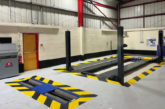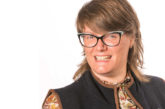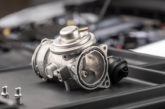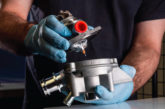
At the start of a new decade, Neil Pattemore returns to give readers an insight into the uncertain future of the aftermarket, and what the next ten years might bring.
With not just another year, but another decade looming, it might be useful to take stock of both where the aftermarket is, and where it is going.
I believe that we have never seen so much change in the automotive sector. This change is not limited to what we’ve seen in the last five years – it also includes the upcoming decade. Some of this has yet to impact the UK aftermarket, but it will, and when it does, these impacts will be significant.
The changes fall into two distinct but linked categories: vehicle technology and legislation. These are forcing big decisions across both the automotive sector and the political landscape, regardless of the ultimate outcome of Brexit.
These decisions will significantly affect the entire automotive sector, and, within this, individual businesses in the aftermarket, large and small. It is a complicated scenario, so to allow for a better understanding, I will first explain some of the background details so that the ’bigger picture’ is easier to understand.
The driving force
The key elements of today’s aftermarket are driven by changes to vehicle design. This not only includes the growing sophistication of the software-centric in-vehicle systems, but also the new ways of communicating with the vehicle itself.
As vehicle manufacturers move towards automated systems, and, ultimately, autonomous vehicles, these developments require wireless software update capabilities to be successful. This has already begun with the ‘connected car’. The remote access to the in-vehicle data is being used to implement ‘predictive services’, to suggest service and repairs directly to the driver from the vehicle manufacturer. Today, the repair process starts in the workshop, but if it begins to start in the vehicle, and you cannot connect to that vehicle remotely, how can you offer the customer a competitive quotation or workshop booking?
The vehicle manufacturers propose that you do so by using a system called ‘extended vehicle’, but to do so, garages need to declare the customer’s details, as well as the service they plan to offer, directly to the vehicle manufacturer. When this ‘extended vehicle’ system was recently assessed at the request of the European Commission, it showed severe limitations in the data available when tested against a case for remote diagnostics and functional testing.
Additionally, remote access introduces risks to cybersecurity, including hacking. In response to these risks, vehicle manufacturers are now designing their vehicles to fulfil cybersecurity requirements, which, in turn, are being discussed in the United Nations in Geneva, to allow the vehicle manufacturers to submit their vehicles for type approval. Their approach is to control or block all non-authorised access to the vehicle, but who will decide who is, or is not, authorised, and what access to what data may be permitted?
This leads to the question of what new legislation needs to be agreed and implemented in support of the aftermarket and other new service providers. Current Block Exemption and Euro 5 repair and maintenance information is based around ‘non-discrimination’ between workshops, and therefore doesn’t cover the requirements of remote access to the vehicle.
The vehicle manufacturer, therefore, is now able to control the access to the vehicle, its data, and subsequently the market, and becomes a service provider in its own right. The legislator may have to make a ‘policy decision’ to either allow continued ‘nondiscriminatory’ competition in the new world of remote services, or to support the needs for cybersecurity of the vehicle and accept the distortion of the market that this will bring.
What’s next?
The European Commission has already conducted a number of studies to evaluate what possible technological solutions to this issue exist, their pros and cons, and their relative ability to support both competition and cybersecurity. It has not revealed its potential decision, and is likely to use an external consultancy to provide guidance for future legislative policy during the first half of 2020. It has recognised that something needs to be done in terms of legislation, but, as of yet, has not indicated what this might be, and whether competition and cybersecurity can realistically coexist.
On another level, the European Commission has recently announced the implementation of mandatory new safety technologies in European vehicles, to protect passengers, pedestrians, and cyclists. For cars, vans, trucks and buses, these include technologies that warn of driver drowsiness and distraction (e.g. smartphone use while driving), give intelligent speed assistance, aid reversing via camera or sensors, and record data in case of an accident. For cars and vans, this new technology includes lane-keeping assistance, advanced emergency braking, and crash-test improved safety belts. Specifically for trucks and buses, improvements in the direct vision of bus and truck drivers to remove blind spots are being made, as well as systems at the front and side of the vehicle that detect and warn of vulnerable road users, especially when making turns.
SERMI
The Commission is also looking at introducing a new aspect to the long-overdue SERMI scheme, which is designed to provide independent workshops with access to ‘security related repair and maintenance information’. The new addition will add ‘illegitimate business activity’ to the scheme’s assessment criteria for independent workshops, in order to address the removal of DPFs and AdBlue system manipulation. This will both complicate and further delay the introduction of the scheme, and, although well intended, may not actually identify the real culprits who conduct this emission system manipulation.
On a brighter note, the new vehicle type approval legislation, which will protect the OBD connector and all of the data that must remain accessible through it, will come into force on 1st September 2020. ‘Electronically processable data sets’ will also make spare parts identification and cross referencing much easier and more accurate.
Ultimately, there are some significant challenges that will require legislative support; new business opportunities for new vehicle systems, and the promise of new legislation, which, although may still be a little further away, will help the aftermarket when it does arrive.









